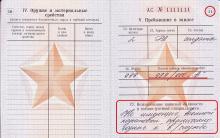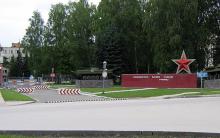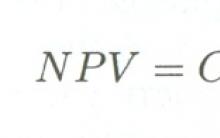Chairman of the Board of Directors of the Open Joint Stock Company "Russian Railways".
Acting State Advisor of the Russian Federation, first class.
Maxim Akimov was born on March 1, 1970 in the city of Maloyaroslavets, Kaluga region. After school, he graduated from the history department of Kaluga State University named after Konstantin Tsiolkovsky. The young man began his working career in 1991, working as a teacher of history, geography, and English in his hometown.
Shortly thereafter he went into business. Since 1994, for two years, Maxim Alekseevich led the company “Fineart-audit”, and underwent professional training under the “Enterprise Value Assessment” program.
Then Akimov went into politics. In 1996, he took the position of chairman of the regional commission for the securities market of the Kaluga region. Then, until 2001, he was Deputy Director of the Department of Economics and Industry of the Government of the Kaluga Region. In 2001, he was appointed first deputy chairman of the state property committee of the Kaluga region. Three years later he became the Minister of Economic Development of the Kaluga Region.
Since 2004, for three years, Maxim Akimov first worked as the first deputy city mayor, and then took the chair of the Head of the city of Kaluga. In 2007, an experienced manager was appointed to the position of deputy governor of the Kaluga region. Akimov held this post for five years. It was during this period that the politician was included in the personnel reserve of President Dmitry Medvedev.
On May 22, 2012, Maxim Alekseevich moved to the position of Deputy Chief of Staff of the Government of the Russian Federation. Here he oversaw issues of economics, finance, customs, state property, energy, industry, transport and communications, as well as investment policy, science, high technology, timber industry, agriculture and fishing.
At the end of May 2013, Akimov was appointed First Deputy Chief of Staff of the Government of the Russian Federation. By decree of the President of Russia dated May 18, 2018, Maxim Alekseevich was appointed to the position of Deputy Prime Minister. Akimov’s area of responsibility included: communications, transport and digitalization of the economy.
In the same year, an experienced leader was elected Chairman of the Board of Directors of the Open Joint Stock Company Russian Railways. He also received the rank of Actual State Advisor of the Russian Federation, first class.
Maxim Akimov June 8, 2019 inspected the construction of the M-11 highway, which will connect St. Petersburg and Moscow. Having visited the construction site of the VIII complex of the toll highway under construction, the deputy chairman was dissatisfied with the execution of the work schedule at the site. In his opinion, in order to finish the route on time, it is necessary to attract additional forces.
Deputy Prime Minister Maxim Akimov July 12, 2019 at a meeting of the board of directors of Russian Venture Company JSC, he was elected Chairman of this board.
Board of Directors of Russian Railways July 26, 2019 re-elected Deputy Prime Minister Maxim Akimov as its chairman.
First Deputy Chief of Staff of the Government of the Russian Federation. He may become one of the deputy prime ministers in the renewed government of Dmitry Medvedev.
Born in Maloyaroslavets
Maxim Alekseevich Akimov is a native of the city of Maloyaroslavets, Kaluga region. The future manager was born on March 1, 1970. There is practically no information about his family in open sources.
Classmate of the Ryazan governor
Maxim studied successfully enough to enter the Kaluga State Pedagogical Institute named after Tsiolkovsky, the Faculty of History. Maxim graduated from the university in 1993.
He became one of his classmates. The young men met and became friends at the Student Spring festival when they participated in humor. Later, Akimov and Lyubimov worked together in the administration of the Kaluga region, and now Lyubimov heads the Ryazan region (some experts suggest that it was Akimov who put in a good word for a friend).
History and audit
During his studies, Akimov worked as a teacher at school for two years, but the time for teachers was not the most promising. After the collapse of the USSR, money rapidly depreciated due to hyperinflation, and salaries were not paid for months. Teachers survived as best they could, going on strikes. And those who had the opportunity left the profession.
Akimov did the same. In 1993, he got a job at the Kaluga Region Property Fund as a leading specialist in the legal department, and the following year he took courses in the Enterprise Value Assessment program and headed the Fainart-Audit company. What exactly the company did is clear from the name.
Architect of the “Kaluga miracle”
Maxim Akimov worked as the head of the Fainart-Audit company from 1994 to 1996, but in the end he preferred the civil service to business. His activities in the government of the Kaluga region began with the regional commission on the securities market. In 1997, Akimov received the position of deputy director of the department of economics and industry of the regional government.
He was not even thirty, and as eyewitnesses later recalled, the still old, Soviet-style apparatchiks often simply did not understand him, although a representative of the Department of Economics and Industry honestly tried to explain to them at meetings the problems of the long-term growth of the economic potential of the Kaluga region. There were all sorts of rumors about who exactly was promoting this strange young man and why.
Now these questions are no longer asked. Maxim Akimov is considered one of the fathers of the “Kaluga Economic Miracle”, thanks to which a completely subsidized region, which does not have significant natural resources, in a matter of years turned into one of the leaders in attracting foreign investment. Since 2006, 880 billion rubles have been invested in the economy of the Kaluga region. It is traditionally one of the regions with maximum socio-political stability.
From region to city and back
In 2001, Maxim Akimov became first deputy chairman of the regional state property committee, and in 2004 he briefly became head of the regional Ministry of Economic Development. However, he did not stay in this post - already in May the official moved to the administration of Kaluga, becoming the first deputy city mayor. In August of the same year, the head of the city, Valery Ivanov, resigned, and Akimov began to perform his duties.
As some media write, Artamonov, the permanent governor of the Kaluga region since 2000, needed to block the path of one of the opposition candidates, and he opposed Akimov to him.
On November 14, elections were held, which Akimov won, although not very convincingly. 34.63 percent of voters voted for him.
He headed the city administration for three years. One of his most important achievements was an increase in the revenue side of the municipal budget by one and a half times, and the most memorable was the idea of holding a carnival on City Day, which was successfully brought to life.
There were some rumors here too - they said that the mayor was somehow caught taking a bribe in Moscow. However, Akimov categorically denied this information, and law enforcement agencies did not have any questions for him.
A year before the mayoral elections, in July 2007, Akimov resigned. He was taken back to the regional government, deputy governor. In August 2011, Maxim Alekseevich was appointed first deputy governor.
All these years he supervised the economic block in the government of the Kaluga region. However, some journalists associate his further career growth not with his main activity, but with a hobby. Akimov headed the Badminton Federation of the Kaluga Region. The second person in the Russian state, Dmitry Medvedev, is actively interested in this sport.
Badminton as part of a career
On May 22, 2012, Maxim Akimov was unexpectedly taken to Moscow. He became deputy chief of staff of the Russian government and one of the few employees of the department who had never previously worked with ex-President Dmitry Medvedev, who took the post of prime minister.
Some Kaluga experts called this appointment a demotion. “He was pushed out of the region,” Vyacheslav Gorbatin, a member of the legislative assembly of the Kaluga region, told reporters, explaining that Akimov interfered with the governor’s circle of initiatives and investment policies that included providing benefits for companies willing to work in the region. So regional officials achieved Akimov’s appointment to the federal government apparatus.
However, later they started talking about Akimov as a protégé of Dmitry Medvedev. It is unknown when exactly the politicians met. They are connected by an interest in new technologies, as well as badmington.
First Deputy Prikhodko
On May 23, 2013, Maxim Akimov took over the post of First Deputy Chief of Staff of the Russian Government Sergei Prikhodko, which he still holds to this day. He is responsible for the implementation of state policy in the field of economics and finance, development of industry, energy, transport and communications, agriculture and agro-industrial complex, management of federal property, customs service, as well as a project office whose tasks include promoting the digital economy.
On June 30, 2016, Akimov joined the Russian Presidential Council for Strategic Development and Priority Projects.
Over the years, Akimov was destined for a ministerial chair several times. In 2013 they wrote that this is one of the most likely candidates for the post of head of the Ministry of Economic Development. Afterwards, they started talking about Akimov again as a likely candidate for the vacant position. However, in the end the conversations did not end in anything.
In September 2017, the media wrote that Maxim Akimov could become the successor to the governor of the Nizhny Novgorod region Valery Shantsev. However, the region was headed by a person from the Ministry of Industry and Trade.
Deputy Prime Minister of the Digital Sphere
On May 7, 2018, the Russian government resigned after newly elected President Vladimir Putin. State Duma deputies approved Dmitry Medvedev's candidacy as prime minister the next day. A new government is now being formed.
Dmitry Medvedev proposed Maxim Akimov for the position of one of the deputy prime ministers. He will oversee issues of the digital economy, transport and communications. This appointment did not surprise anyone from the establishment - Akimov had worked in this area before in the government apparatus.
Personal life
Little is known about the personal life of Maxim Akimov. He is married and has two sons. Maxim Alekseevich’s wife, apparently, is not engaged in any income-generating activities - according to her income statement, in 2015 she brought nothing into the family piggy bank, and in 2016 her contribution amounted to 25 thousand rubles. But the Akimovs, of course, have enough to live on - the head of the family earns almost 9 million rubles a year.
He is called the “Kaluga miracle worker”. Many people do not understand how someone who was just a simple teacher yesterday could become an official at a large administrative level. He became not just a politician, but Deputy Prime Minister of the Russian Prime Minister Dmitry Medvedev and First Deputy Head of the Russian Government Staff.
This man's name is Maxim Akimov. Read about who he is and how the biography of the current Deputy Prime Minister developed in the material of the online information publication .
Maxim Akimov: biography, family, parents
The Russian politician was born in the Kaluga region, in the small town of Maloyaroslavets in 1970. There is practically no information in open sources about his family. Only the father’s first and last name is known - Alexey Akimov. Good performance during his school years allowed Maxim to become a student at the Faculty of History at Kaluga State Pedagogical University named after Tsiolkovsky. Graduated from the university in 1993. The future official did not waste time and already from the third year he worked as a teacher of history, geography and English in one of the schools in Maloyaroslavets. His teaching career lasted from 1991 to 1995.
An interesting fact from student life is his friendship with the future Ryazan governor Nikolai Lyubimov. The young men met at the Student Spring festival, and after graduating from university they worked together in the administration of the Kaluga region.
Since 1994, he decides to go into the private sector due to the state's problems in the teaching field - non-payment of already low salaries, the consequences of the collapse of the USSR. The transition from teaching children to business occurred after taking courses in the Enterprise Valuation program in 1993. For some time, combining with employment at school, he works as the head of the Russian economic consulting company Fainart-Audit. The firm specialized in securities market analysis, and its specialists provided consulting and audit services to interested parties. In total, he worked for the company for just over two years, from 1994 to 1996.
Political successes: the creator of the “Kaluga miracle”
Having worked in a private company for 2 years, Akimov chose public service over business. Experience in securities analysis became an excellent help for climbing the career ladder “to the sky.”
His career as a politician began with work in the regional commission for the securities market under the government of the Kaluga region. Already in 1997, he managed to obtain the position of deputy director of the department of economics and industry. In the media you can read the opinions of former colleagues of the official about how they never ceased to be surprised by the fact of Maxim Alekseevich’s sharp career growth. Just “yesterday” he was a history teacher, and “today” he sits in a government chair. The old Soviet apparatchiks were confused by the passion and professionalism of their colleague - at economic meetings he constantly talked about the prospects for economic growth in the Kaluga region.
But the “conservatives” really opened their mouths in surprise when Akimov turned the region from a completely subsidized region into a leader in attracting foreign investment. From 2006 to 2018, 880 billion rubles were invested. Now the region is considered one of the most socially sustainable in Russia. Thanks to his merits, the official received the unspoken nickname “Father of the Kaluga Economic Miracle.”
Breakthrough in the Russian government
After success in the economic field in the region, his career took off.
- 2001 - the politician became first deputy chairman of the regional state property committee;
- 2004 - headed the Ministry of Economic Development of the region;
- In May 2004, the official resigned from his leadership position to the position of first deputy head of the Kaluga region;
- August of the same year became significant, as the head of the region, Valery Ivanov, resigned, and Akimov accepted the duties of the head of the subject of the Russian Federation. During his work in the regional administration, Maxim Alekseevich increased municipal budget revenues by one and a half times;
- 2007 - the politician resigned as head of the region and went back to the regional government as deputy governor of Anatoly Artamonov;
- 2011 - appointed first deputy governor;
- The end of May 2012 can be considered fateful, since the official from Kaluga was taken to Moscow, where he became deputy head of the PRF Administration. The most interesting thing is that Akimov is one of the few in the establishment who began working with Prime Minister Dmitry Medvedev without having previously communicated with him;
- Since June 30, 2016, he has been a member of the Russian Presidential Council for Strategic Development and Priority Projects.
After the presidential election, Maxim Akimov remained first deputy head of the RF APR Sergei Prikhodko. The Deputy Prime Minister’s tasks include overseeing the following sectors: energy, transport and communications, industrial development, agriculture, promoting the concept of “digital economy and the provision of public services,” as well as the implementation of a national project to create high-quality and safe roads. Maxim Alekseevich has state awards: the Order of Alexander Nevsky and government gratitude. Both were awarded in 2014.
Execution of Putin’s “May decrees”
In conclusion, we note that after the presidential inauguration and (see our exclusive material), Akimov actively began to fulfill his duties and, most importantly, Putin’s “May decrees”. The President made it clear that the introduction of modern digital technologies, improving the quality of life of Russians, building new roads, factories, solving demographic and medical problems are priority areas of government activity.
In July 2018, Deputy Medvedev held a working meeting on the development of the road transport industry in the Novosibirsk region, talked with the heads of institutes of the Siberian Russian Academy of Sciences, and also visited the Medical Industrial Park and Technopark of the Novosibirsk Academic Town. During conversations with politicians, tasks were set for the development of the Novosibirsk metro, the construction of roads and bridges across the Ob River, as well as the modernization of Tolmachevo Airport.
On July 17, the Deputy Prime Minister arrived in the Nizhny Novgorod region, where he held a meeting on strategically important issues of the development of the Digital Economy. The region was not chosen by chance. It is in this area that more than 700 IT companies that have proven their competitiveness in the world are concentrated, and over 20,000 programmers work. Moreover, there is high demand for new software, services and innovation in the region. Nizhny Novgorod and the region will become an experimental platform where they will implement the “smart city” system and also test developments in the development of the digital economy. The specialists were given the task of replicating already successful developments and creating innovative pilot projects.
This article will tell you about Maxim Akimov. A history teacher, politician, successful businessman who, in a short period of time, was able to make an excellent career for himself. Maxim worked as a history teacher at school, after which in the nineties he found himself in government circles in Kaluga. This is where his career path as a politician began. This article will describe the career growth of this brilliant politician, mention well-known details of his personal life, examine interesting facts and retell the latest interview with Maxim Akimov about the government and the future of the Russian Federation.
Youth
The biography of Maxim Alekseevich Akimov begins with the fact that he was born in the city of Maloyaroslavets, Kaluga Region, on March 1, 1970. The city is located 60 km from the regional center. School years are not full of bright certificates and significant moments. He studied well and was a quiet guy.
After graduating from school, the young politician chooses teaching for himself, deciding to become a teacher. Maxim enters the university at the department of history. Already in his student years, the young man gets a job as a teacher of history, English and geography at a local school. So he begins to earn his own living.
Carier start

In the troubled times of the end of the last century, and more specifically, in 1994, Maxim dramatically changed the direction of his career. He gets a managerial position at the Fainart-Audit company. Before his thirtieth birthday, Maxim manages to get into politics, taking the position of head of the commission overseeing the securities market in the Kaluga region.
Main career politician and awards

- A year later, the young politician holds the position of deputy director of the regional department of economics and industry.
- Then the man goes for a promotion to the government. Maxim Akimov becomes deputy chairman of the state property committee of the Kaluga region.
- After it became clear to the highest circles of power that Maxim was well versed in many areas, including financial matters, he was appointed Minister of Economic Development.
- Then he becomes deputy head of the city of Kaluga.
- In 2004, the post of head was vacated and a deputy took it.
- In 2012, the Moscow leadership notices the successes of the established and self-confident politician and invites him to Moscow for the position of deputy chief of staff of the Government of the Russian Federation.
- A year later, Maxim Akimov becomes the first deputy of Dmitry Anatolyevich Medvedev.
- In 2016, politics will see a significant increase. He occupies a very promising and one of the main positions, namely, he becomes a state adviser on the strategic development of the country.
- In the fall of the same year, the politician applied for the ministerial chair, but this position was given to a completely different deputy - Maxim Oreshkin.
The awards of the politician Maxim Akimov include:
- 2014 - Akimov received gratitude from the government of the Russian Federation.
- 2014 - received the Order of Alexander Nevsky.
- 2017 - awarded the medal “For special services to the Kaluga region.”
Additional policy positions

The specialization of this Russian politician is very extensive. Maxim Akimov was actively involved in both internal and external financial issues. Over the years, state property, communications, transport and energy were under his supervision.
Soon Akimov became the head of the overall issues of development of the country's economy, agriculture, high technology and science. Later he began to additionally engage in control in the field of investment policy, fisheries and general industrial issues of the Russian Federation.
Personal life of a politician
Unfortunately, for the purposes of confidentiality, political integrity and in accordance with the wishes of the young politician, all information about his personal life is hidden from prying eyes. That is why it is not available to you and me.
The only thing we managed to find out was that the young historian got married in his youth. At the moment, he is raising two sons, information about whose personalities is also carefully hidden.
Further career of the politician and his awards

- In August 2017, by Medvedev’s decree, he was appointed head of the subcommittee on the development of the country’s economy and technology under the Government of the Russian Federation. Maxim Akimov began overseeing the Digital Economy program.
- In 2017, the Russian politician was going to change his position to the vacant vacancy of the governor of the Nizhny Novgorod region. He was on the short list of politicians who were going to take the vacant seat.
- In May 2018, his candidacy was considered for the post of Deputy Prime Minister. Maxim Akimov was supposed to replace Arkady Dvorkovich as prime minister for communications, transport and the digital economy. Currently, the politician has been appointed Deputy Prime Minister of the Russian Federation.
The possibility and forecasts of the Russian Federation’s transition to a digital economy were announced by the current President of the Russian Federation, Vladimir Vladimirovich Putin. This was announced at the end of 2016. According to the President of the Russian Federation, over the next 10 years Russia will develop along the path of IT technologies, which will occupy a leading place in the country's manufacturing industries.
According to the President of the Russian Federation, in the future an entire system of so-called information democracy will be created. According to this system, the financial life of every person in the Russian Federation will soon have to switch to numbers. The main industries to which this bill will apply are:
- Judicial system.
- Medicine.
- Education.
- Bank operations.
In mid-summer 2017, this bill was approved by the President of the Russian Federation.
Interview with Maxim Akimov

At the beginning of February 2018, journalists spoke with the politician. Akimov said that he will be waiting for citizens of the Russian Federation in ten years.
His first statement was that plastic cards will cease to be relevant. The payment and financial system will work with the latest technologies, including all well-known instant messengers. When asked what all this would look like, the politician did not give a clear answer. However, he stated that there are active discussions and discussions on this issue in political circles. The politician also added that all current banking services will fade into the background in a few years. They will be replaced by various digital platforms.
Major internal political changes in the country with these reforms will also affect the education system. The Duma is considering the possibility of some kind of innovation, which in turn will reshape the entire educational system. According to politician Akimov, the training regime will be individual for each student and will be held through online broadcasts.
Maxim Alekseevich noted that with the arrival of these updates, citizens of the Russian Federation will begin to understand all the advantages and further innovations of the country’s development, which will be ensured through research and improvements in IT technologies. In other words, we can say that the overall literacy of the country's population will increase.
Maxim Alekseevich Akimov- Russian statesman, since May 18, 2018 - Deputy Prime Minister of Russia. Maxim Akimov’s responsibilities include overseeing issues of transport, communications and the digital economy. From 2007 to 2012, Maxim Alekseevich served as First Deputy Chief of Staff of the Government of the Russian Federation. Akimov also worked as deputy governor of the Kaluga region. From 2004 to 2007, Maxim Akimov was the mayor of Kaluga. Maxim Alekseevich is an active state adviser of the Russian Federation, 1st class (since 2016).
Education of Maxim Akimov
After school, Maxim Akimov entered the Kaluga State Pedagogical University named after. K.E. Tsiolkovsky, who graduated with honors in 1993. While studying in his final years at the university, in 1991 Maxim worked as a teacher of history, geography, and English in the city of Maloyaroslavets.
Maxim Alekseevich served in the ranks of the Soviet Army.
Career of Maxim Akimov
Two years after graduating from university, Maxim Akimov continued working as a teacher in a secondary school.
In 1994-1996, Maxim Alekseevich became the head of the Fainart-audit company. In 1996-1997, Maxim Akimov headed the securities market commission of the Kaluga region.
Maxim Akimov moved up the career ladder successfully. From Akimov’s biography it is known that from 1997 to 2001 Maxim Alekseevich worked as deputy director of the department of economics and industry of the government of the Kaluga region, then until 2004 he served as first deputy chairman of the region’s state property committee. In 2004, Maxim Alekseevich Akimov became the Minister of Economic Development of the Kaluga Region.
In May 2004, Maxim Akimov went to work at the Kaluga City Government as first deputy mayor. After the resignation of the Kaluga mayor Valeria Ivanova in August 2004, Maxim Alekseevich took his place as acting. On November 14, 2004, Maxim Akimov was elected mayor of Kaluga, gaining 34.63% of the votes.
Local media noted that Akimov’s nomination took place at the suggestion of the governor of the Kaluga region Anatoly Artamonov.
From July 2007 to May 2012, Maxim Akimov was deputy governor of Artamonov. In this position, Maxim Alekseevich supervised the regional ministries of economic development, finance, competition policy and tariffs, and was responsible for the formation and implementation of economic, financial, budgetary and investment policies of the Kaluga region.
On May 22, 2012, Maxim Alekseevich Akimov became Deputy Chief of Staff of the Government of the Russian Federation, and in 2013, by decree Dmitry Medvedev he was appointed first deputy chief of staff.
On June 30, 2016, Maxim Akimov became a member of the Council for Strategic Development and Priority Projects under the President of the Russian Federation.
After suspension Alexey Ulyukaev from the post of Minister of Economic Development of Russia on November 15, 2016, information appeared in the media that Maxim Akimov is one of the contenders for the vacant post of minister (along with Ksenia Yudaeva And Andrey Belousov), but this news was not confirmed.
On May 10, 2018 it became known that the first deputy head of the Cabinet of Ministers, Maxim Akimov, in the new government with the rank of Deputy Prime Minister, would be responsible for the digitalization of the economy along with communications issues. His candidacy was proposed by head of government Dmitry Medvedev.
On May 18, 2018, Maxim Akimov was approved as Deputy Prime Minister of the government. In the new government, Maxim Alekseevich oversees the implementation of the national program “Digital Economy” and the national project to create safe and high-quality roads. His powers also include the digitalization of public administration, including the provision of public services. Akimov is responsible for issues of transport, communications, innovation, issues related to real estate and intellectual property, it was reported in the news.
“The digital economy is not only, and not so much about the economy. First of all, this is a transformation of all spheres of life - healthcare, our daily practices, culture, gaming. Anything: the process of shopping, the process of moving goods, cargo, people, processes of relationships between them, including those based on social networks,” Maxim Akimov said in an interview about his new position in the government.
On the sidelines of SPIEF 2018, Deputy Prime Minister of the Russian Federation Maxim Akimov allowed an increase in funding for projects of the Ministry of Digital Development compared to funding for the Ministry of Telecom and Mass Communications.
“The budget will follow the powers and new goals,” said Maxim Akimov, noting that one of the main tasks of the ministry will be the correlation of the tasks of the digital economy development program with the budget of the Russian Federation.
On May 29, Deputy Prime Minister Maxim Akimov, Vitaly Mutko And Konstantin Chuychenko joined the new supervisory board of VEB.
The biography of Maxim Akimov on the TASS website says that he is on the board of directors of the joint stock company Innopolis Special Economic Zone.
Maxim Alekseevich was awarded the order Alexander Nevsky(2014), awarded with gratitude from the government of the Russian Federation (2014).
Maxim Alekseevich Akimov was the president of the Badminton Federation of the Kaluga Region.
Income of Maxim Akimov
The total amount of Maxim Akimov’s declared annual income for 2015 was 8 million 715 thousand rubles; his wife, according to the declaration, had no income.
Akimov’s income for 2016 amounted to 8 million 844 thousand rubles, that of Maxim Alekseevich’s wife - 25 thousand rubles.
Personal life of Maxim Akimov
There is little information about the personal life of Maxim Akimov. It is known that he is married and has two sons.











Weekly horoscope: Love adventures await Scorpios
Why do you dream about a live pig?
How to master elemental magic, magic in real life
Control of the elements of water, fire, air and earth
Russians are God's third chosen people. Why are Jews considered the chosen people?